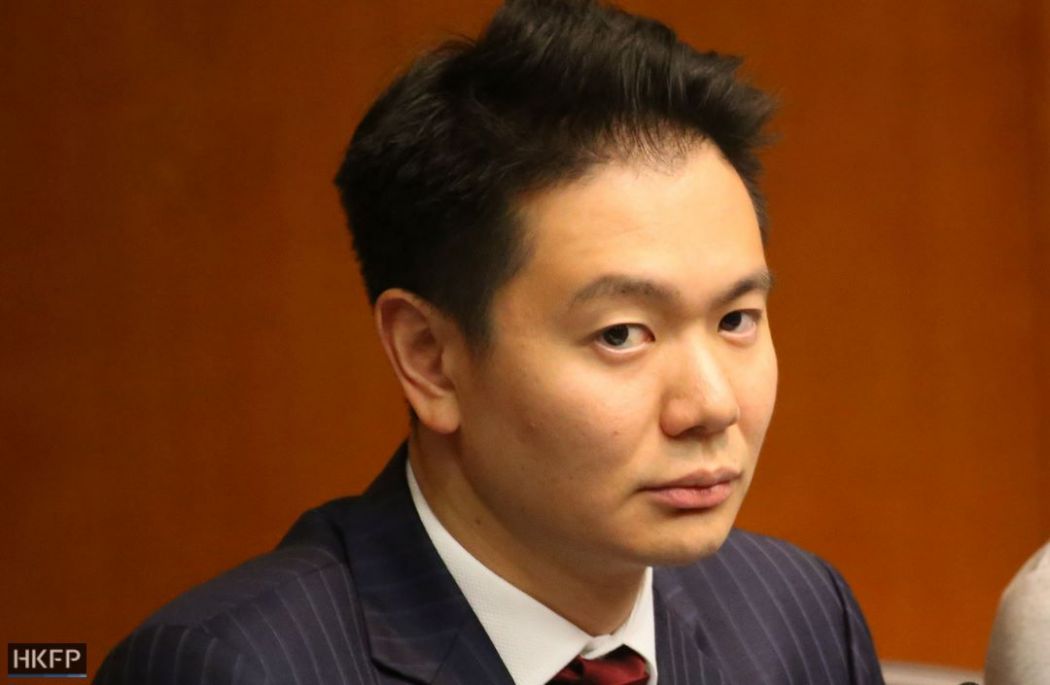The Democratic Party launched a crowdfunding campaign on Monday to fund a probe into former Hong Kong leader Leung Chun-ying’s controversial HK$50 million payment from Australian firm UGL.
The campaign “Wolf-Hunting Action” – named after one of Leung’s nicknames – aims to raise at least HK$2 million in 90 days to support an investigation in Hong Kong, the United Kingdom and Australia. The funds may be used for legal and accounting services, professional advisory services, liaison with overseas stakeholders, and gathering of evidence.
Leung received what he described as a non-compete and non-poach payment of HK$50 million from UGL after it acquired UK firm DTZ. Leung was DTZ’s director in 2011, before he ran for chief executive. The payments were made in 2012 and 2013, while Leung was in office, but were only made public by Australian media in 2014. Leung has denied any wrongdoing.

In February, the Department of Justice issued a statement saying that it has yet to decide whether to prosecute Leung, denying reports claiming the case had been closed.
The crowdfunding campaign was launched by lawmakers Lam Cheuk-ting, Andrew Wan, Roy Kwong and barrister Senia Ng. They said they received two sets of legal advice – one from Queen’s Counsel Paul Harris and another from a team of Hong Kong lawyers – which showed that Leung may have committed two offences.
“We believe that after reading the legal advice, a reasonable person will believe there is strong prima facie evidence in Leung Chun-ying’s UGL alleged bribery case to support our accusations,” Lam said.
Lam said the funds raised will also be used to pay legal, administrative, and promotional fees.
Previously, Lam went to Hong Kong’s Independent Commission Against Corruption and the UK’s National Crime Agency to report the case and submit relevant legal advice.
At a press conference announcing the campaign, Lam was asked if the party was concerned that Leung would take legal action against them. “We are not concerned about losing the case if we get sued. All our documents are publicly available information. We made fair comments after we had experts review our information and we listened to legal advice.”

Bribery, misconduct in public office
Ng said Leung may have violated section 9 of the Prevention of Bribery Ordinance, which concerns corrupt transactions with agents. Ng said the legal team has reason to believe, on the basis of public documents, that Leung was already in talks with UGL over its purchase of DTZ weeks before he tendered his resignation as director in early December 2011.
“The money [Leung] received was deducted from the purchasing price – it clearly harms the company’s interest,” Ng said.
Ng said there was another bid in October 2011 to purchase the firm for a higher price, but it was rejected by the board of directors: “[Leung] can only receive this money after the [UGL] purchase is successful – there is reason to believe that he would encourage this purchase.”
Additionally, it was uncertain whether Leung had revealed his deal with UGL with parties on his company’s side at the time. “Leung has a responsibility to completely reveal it to the relevant parties – there was some suspicion in the information that can be acquired publicly, thus we have to investigate more,” Ng said.
Ng added that Leung may have committed an offence of misconduct in public office since there was no public information showing that Leung had declared the payment he received while he was chief executive, or indicating that he paid any taxes on it.
Slow progress
In 2016, Hong Kong’s legislature formed a select committee to investigate the matter. Last year, pro-Beijing lawmaker Holden Chow was forced to resign from the committee after secretly allowing Leung to alter documents related to the scope of the probe. Committee chair Paul Tse said Leung refused to cooperate with the investigation.

Lawmaker Wan said the pro-Beijing camp has been “using filibusters” to delay the proceedings: “90 per cent of the time was spent on trivial and repetitive matters.”
Wan said there was a need to gather more information before the committee’s time runs out at the end of its term in July 2020: “We have almost used up half of our time, but we have yet to even summon witnesses.”
The funds raised under the campaign will be annually audited by an independent accountant, and all income and expenses will be made public.
